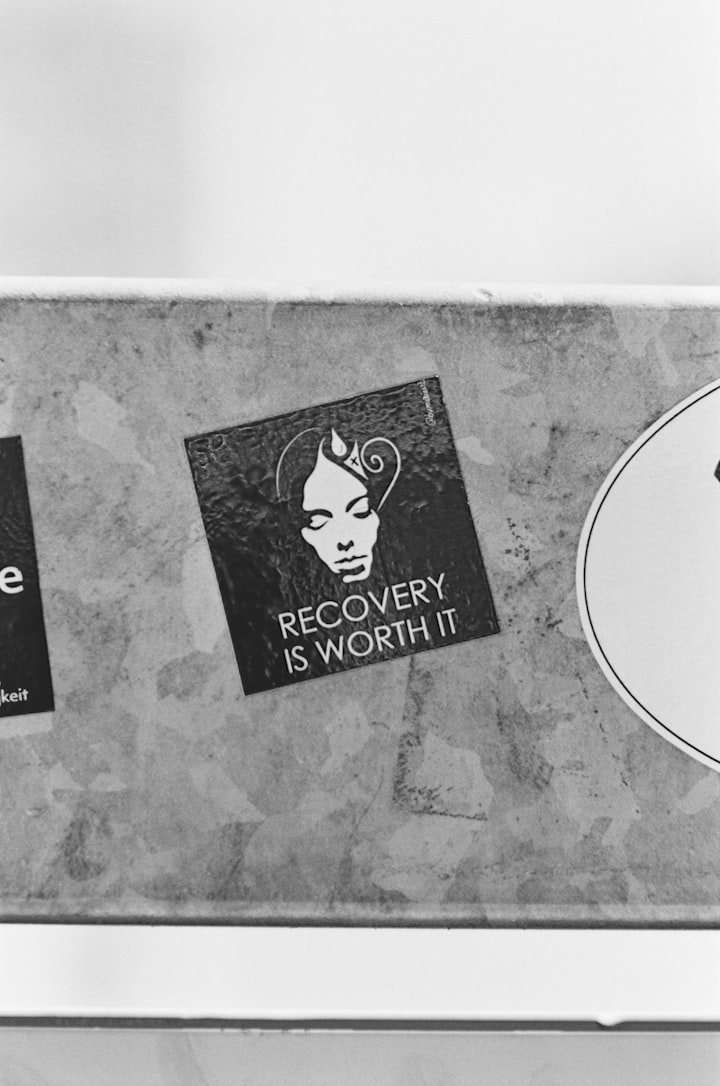The Hangover Effect of Trauma
Be warned: telling your story can have side-effects the next day.

I read a great article by psychotherapist Dr. David A. Treleaven the other day entitled, “Is Mindfulness Safe For Trauma Survivors?”, in which he goes through the real concerns with trauma victims being instructed to practice meditation and mindfulness as a means of processing what’s happened to them.
“When asked to pay focused, sustained attention to their internal experience, trauma survivors can find themselves overwhelmed by flashbacks and heightened emotional arousal. I’ve met survivors who, despite their best intentions, have ended up feeling disoriented, distressed and humiliated for somehow making things worse. The power of meditation thrusts survivors directly into the heart of wounds that often require more than mindful awareness to heal.” — Dr. David A. Treleaven
This really resonated with me — I’ve always been of the mindset that being open and talking about my trauma was helpful and healing for me.
Isn’t that what everyone says you're supposed to do to heal? Talk about it, and you’ll instantly feel better… right?
As I started writing online, I took the opportunity to delve into the darkest parts of my soul to discover the little worms still lurking, unidentified, in my body following my traumatic sexual assault.
I learned plenty of new things about myself, my trauma, and how to manage it.
But I also found a very unsettling pattern emerging — after a few weeks of sprint-writing about my trauma online, I wasn’t necessarily feeling any better.
In fact, I started to feel worse about myself.
I’ve been spending years talking openly about my sexual assault, and the trauma which has resulted from it.
I’ve only just started to openly talk about the general anxiety and episodes of paranoia I now live with due to that trauma.
I’m surprised it’s taken me this long to make the connection, but I know that processing life-altering events isn’t an overnight practice.
We have to use grace with ourselves in these situations, after all.
The whip-lash effects of opening up.
When I first talked about my sexual assault, I owned it and felt empowered by the support and compassion I would receive.
It was therapeutic to do so. So I never hesitated to talk about it, if the time presented itself.
More often than not, that time was among other women, and it was to let them know that they were not alone, and I understood what they were going through.
For years, it was therapeutic. Until, in the last couple of years, it started to change.
I was glad to be sharing — I value relating to other women so that they don’t feel so isolated in their struggles. It felt like I was doing my part for the better tomorrow I would hope to have for my future daughter(s).
But sharing was no longer therapeutic for me. It started to feel like something heavier. It would weigh on me more. And the more I’ve been writing about it, the more I’ve come to make a very notable connection.
Talking about trauma is like binge-drinking. In the early days, it’s great and completely worth it because you’re young and it’s fresh and you see the silver lining. But as you get older, the benefits begin to slowly disappear, and all you’re left with the next day is a mind-pounding hangover.
The after-effects of trauma are like releasing a steady flow of toxins into your body.
The day after I share my story, or go deeply into my trauma in a conversation with someone, I experience hang-over-like symptoms.
A little bit of self-dread. A pounding headache. Wanting to crawl into a hole. Never wanting to leave the comfort of my bed. Wishing to spend the whole day feeling sorry for myself, and a bit of nauseousness to top it all off.
I’ve now come to realize that the therapeutic side of talking about my trauma is less and less, and instead, I subject myself to a binge-drinking-like process for the benefit of others, rather than myself.
I’m not likely to stop doing this— I will always speak up if there is a fellow victim who needs to know that he or she is not alone.
But I now understand, like a university student in the second year of their psychology major, that there are consequences to diving into this arena — and that a hangover the next day is basically inevitable.
Some days I wake up pleasantly surprised — my hangover from my trauma-binge actually isn’t so bad. I have (very few) similar days when I drink too much at a party and wake up the next morning feeling like roses — rare, but they sometimes happen.
But more often than not, I can expect the side-effects. The headaches, the melancholy disposition, the desire to live in my sweatpants forever and close all the curtains so that the sunlight doesn’t melt my eyeballs… Like binge-drinking, this is what my hangover looks like after talking about my sexual assault, and the trauma which resulted from it.
Tell your story, but also protect yourself.
We can’t live every single day of our lives with a trauma-binge hangover.
I personally have a business to run and sh*t to get done. I don’t want my trauma acting as a constant force trying to sabotage my happiness.
I want to be able to enjoy life, not live with this ever-lingering feeling of melancholy and self-dread.
And for that reason, we must practice mindfulness and selectiveness about when and how we share our stories, knowing the likely side-effects we may experience after we open up.
We must protect ourselves, as well as help others.
Sometimes, support can look as simple as replying “#MeToo” in a comment section. You don’t have to compromise your own mental health and healing journey by digging into all the nitty-gritty and upsetting details every time you tell your stories.
There’s is power and an abundance of strength in simply saying, “Me, too”.
Let’s give ourselves permission, as survivors, to not have to compromise ourselves every time we show support to another survivor. Know that, while it’s heartbreaking, there are plenty of us out there — just because you don’t spill your soul, doesn’t mean that victim will be entirely alone.
Our fellow sisters and brothers will be there to support that survivor when we need to focus on supporting and protecting ourselves.
This article was originally published by the author on Medium.






Comments
There are no comments for this story
Be the first to respond and start the conversation.